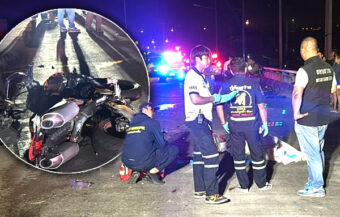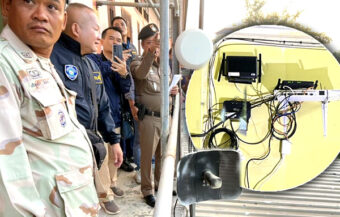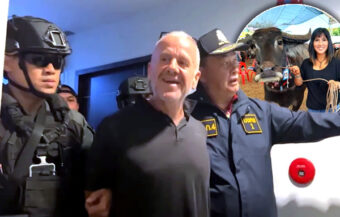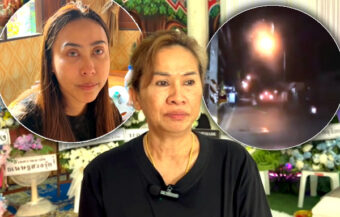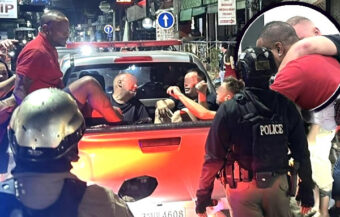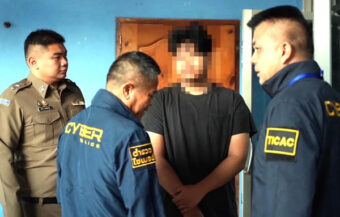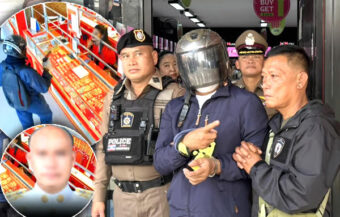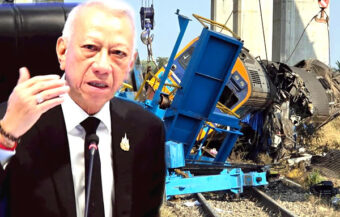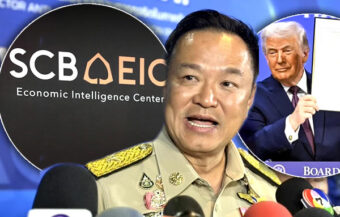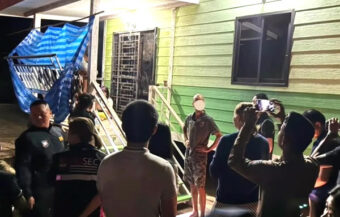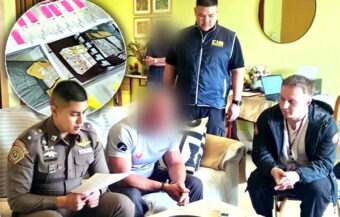Border standoff escalates as Thailand delays return of 18 Cambodian soldiers, sparking outrage and accusations of kidnapping. Both nations trade blame amid rising official casualty figures, legal wrangling and diplomatic pressure to avoid a full-blown crisis.
Tensions between Thailand and Cambodia are once again boiling over. Eighteen Cambodian soldiers captured in a July 29 clash near Sisaket were expected to be sent home — but weren’t. On Thursday night, the Thai military abruptly halted their repatriation, citing legal procedures and the need to record testimony. The delay lit a fire online. Cambodian social media exploded with outrage, accusing Thailand of kidnapping and demanding the troops’ immediate return. Nationalist rhetoric surged. Thailand pushed back hard. Deputy Defence Minister Nattapol Nakpanit rejected the claims, warning that disinformation was already muddying the waters. He insisted Thailand must protect itself by documenting everything — and refusing to rush under pressure. Now, the standoff is edging toward a diplomatic flashpoint. Both sides are under growing pressure to de-escalate — or risk plunging their already fragile relationship into a deeper crisis.
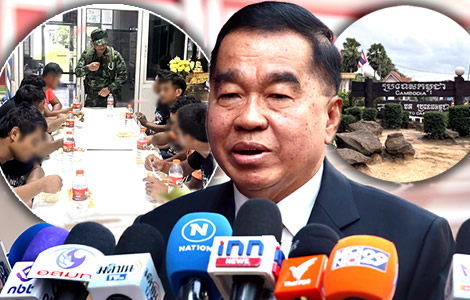
Tensions are rising again along the Thai-Cambodian border following the Royal Thai Army’s decision to halt a scheduled repatriation. On July 31, the army postponed the return of 18 captured Cambodian soldiers, just days after they surrendered during clashes on July 29, 2025.
The soldiers laid down their arms in the Chong Sam Taet area of Kantharalak District, Sisaket Province. According to Thai officials, they entered Thai territory after exhausting their ammunition during border fighting.
Although the Royal Thai Army initially planned to return all 20 captured soldiers, that changed late Thursday night. On August 1, only two Cambodian soldiers were handed over to Cambodian authorities at the Chong Chom border crossing.
Two Cambodian soldiers returned injured, while 18 remain in custody pending legal and interview process
One of the two had suffered a broken arm. The other showed signs of mental trauma after intense fighting. Both men had been treated at Weerawat Yothin Camp Hospital in Surin Province under military supervision.
Meanwhile, the remaining 18 soldiers are still in custody. Thai Army Region 2 stated they must first complete interviews and legal processing. Until then, their repatriation will be postponed indefinitely.
Importantly, Thailand insists the delay is not politically motivated. Officials say it is necessary to comply with immigration law and international standards.
Deputy Defence Minister General Nattapol Nakpanich addressed the matter at Government House on July 31. He also heads the Thai-Cambodia Border Situation Management Centre.
In his remarks, Gen. Nattapol firmly rejected Cambodia’s accusations that Thailand kidnapped the soldiers. Instead, he explained that they were detained after an illegal border crossing.
“When they surrendered, we provided food, water, medical care, even toothbrushes,” he said. “Yet Cambodia accused us of kidnapping.”
Thailand says it must document soldier testimonies to counter future disinformation and false claims
According to him, Thailand must now document the truth. Testimonies from the soldiers will be collected to defend against future misinformation.
“We will return them humanely,” he added, “but only after proving we did not mistreat or abduct them.”
Notably, this episode has stirred significant diplomatic controversy. Cambodia called for the immediate and unconditional release of all 20 soldiers.
Prime Minister Hun Manet posted a lengthy statement on Facebook on July 31, responding to public pressure over the soldiers’ fate. He said the Cambodian government had prioritised the lives of its troops since the moment of their arrest.
Furthermore, Hun Manet confirmed that Cambodia reached out to Malaysia, a third-party ceasefire monitor, to help facilitate the soldiers’ return.
“This is not a failure of communication,” he said. “It’s an effort to protect our forces and negotiate their safe return.”
Cambodia accuses Thailand of war crimes and demands release of troops detained after border clash
At the same time, Cambodia’s Ministry of Defence issued a forceful statement blaming Thailand for recent escalations. Officials accused Thai troops of using cluster bombs and crossing into Cambodian territory in violation of international law.
Cambodian Defence Ministry spokesperson Lieutenant General Malee Socheata urged Thailand to release “any and all” detained soldiers without delay. She insisted Cambodia would not abandon its troops, no matter the circumstances.
Although Cambodia accuses Thailand of aggression, Thai military officials argue they are simply responding to artillery and rocket fire from across the border. According to Thai sources, Cambodian forces opened fire on July 24, targeting civilian infrastructure in several Thai villages.
As a result of the clashes, 17 civilians and 15 soldiers have been killed. Thai authorities report that an additional 38 civilians and 196 Thai soldiers have been injured in the fighting.
The attacks damaged schools, hospitals, fuel stations and private homes. In response, Thai forces retaliated, leading to a dangerous military standoff on both sides of the border.
Thailand criticised for slow public response as Cambodia takes lead in messaging and media coordination
Despite the severity of the situation, Thailand has been slow to share information with the public. This has led to growing domestic criticism of both military and civilian authorities.
Many Thai citizens and media outlets say the government appears reactive and slow compared to Cambodia. They point to Cambodia’s swift public messaging and early engagement with international media and military attachés.
For example, on July 30, Cambodia hosted 22 foreign military attachés and several media crews. They were shown damage allegedly caused by Thai fire in Cambodian territory.
Thailand, however, delayed its own diplomatic tour until August 1. This decision raised questions about the government’s communications strategy.
In response to the criticism, Gen. Nattapol defended Thailand’s caution. He explained that Cambodia could act quickly because they were confident Thailand had ceased fire. Thailand, on the other hand, could not be sure Cambodia had done the same.
“We couldn’t risk inviting foreign observers into potential gunfire,” he said. “Only once Cambodia hosted theirs could we be sure it was safe.”
Thai officials apologise to public and promise better media coordination through new communications centre
Even so, he acknowledged public frustration. “I understand people think we’re moving too slowly. But facts take time to establish. We will not match distortion with more distortion.”
He also apologised directly to the Thai public. “I regret that our response hasn’t met expectations. But we are committed to truth, not theatrics.”
To improve communication, the Thai-Cambodia Border Situation Management Centre is establishing a one-stop media coordination centre. Spokesperson Lieutenant Colonel Surasant Kongsiri said the centre will be operational within days.
“This will help foreign and local journalists get verified updates. We want to end confusion and counter false reporting,” he said.
Thailand’s Foreign Ministry has also emphasised the importance of factual reporting. Deputy Director-General Maratee Nalita Andamo said the August 1 site visit would highlight the real damage caused by Cambodian artillery.
Cambodia accused of breaching humanitarian law while pressure builds for return of remaining soldiers
She stated that the goal is to demonstrate how Cambodia’s attacks violated international humanitarian law by striking civilian infrastructure.
While Thailand continues to promise that the 18 soldiers will be returned once legal reviews conclude, no firm date has been announced. The Royal Thai Army insists the process will follow the Geneva Convention and Thai legal codes.
Meanwhile, Cambodia continues to apply pressure through diplomatic channels. Hun Manet and Cambodian generals remain in regular contact with Thai military officials. In addition, Cambodian officials are urging Malaysia to press Thailand for a speedy resolution.
The stakes are high on both sides. For Cambodia, the issue has become a national rallying point. For Thailand, it has exposed weaknesses in crisis communication and coordination between the military and civilian sectors.
Observers say the situation highlights a deeper bureaucratic problem within Thai governance. The army and foreign ministry appear divided in their pace and approach, further complicating the border standoff.
Thailand defends legal approach and warns against propaganda. Both sides face growing global scrutiny
Yet Thai officials maintain that the country’s actions are measured, deliberate and lawful. According to Gen. Nattapol, anything less would undermine Thailand’s credibility on the world stage.
“If we acted like them, we’d be no better,” he said. “We are not interested in propaganda wars. We’re interested in lawful, humanitarian conduct.”
Cambodia attacks Thailand on another front. The treatment of its migrant workforce, calls for a boycott
Information war raging across the world as Thailand combats Cambodia’s propaganda wave in New York
More Border clashes despite ceasefire as frontline Cambodian troops give up amid food shortage reports
For now, the fate of the 18 Cambodian soldiers remains uncertain. However, Thai officials continue to insist that the soldiers are being treated fairly, humanely and in line with international law. Both governments are under growing pressure to de-escalate, restore stability and return to negotiations.
Until then, the border remains volatile, the soldiers remain in custody and the region waits for a peaceful resolution.
Join the Thai News forum, follow Thai Examiner on Facebook here
Receive all our stories as they come out on Telegram here
Follow Thai Examiner here
Further reading:
Information war raging across the world as Thailand combats Cambodia’s propaganda wave in New York
Thailand must certainly speak more boldly and engage foreign media actively to win the information war
Acting PM travels to Kuala Lumpur for ceasefire talks. Cambodia’s PM Hun Manet to attend amid PR war
Hot War rages on the Thai-Cambodian border following Cambodian troops offensive in Chong Bok area

